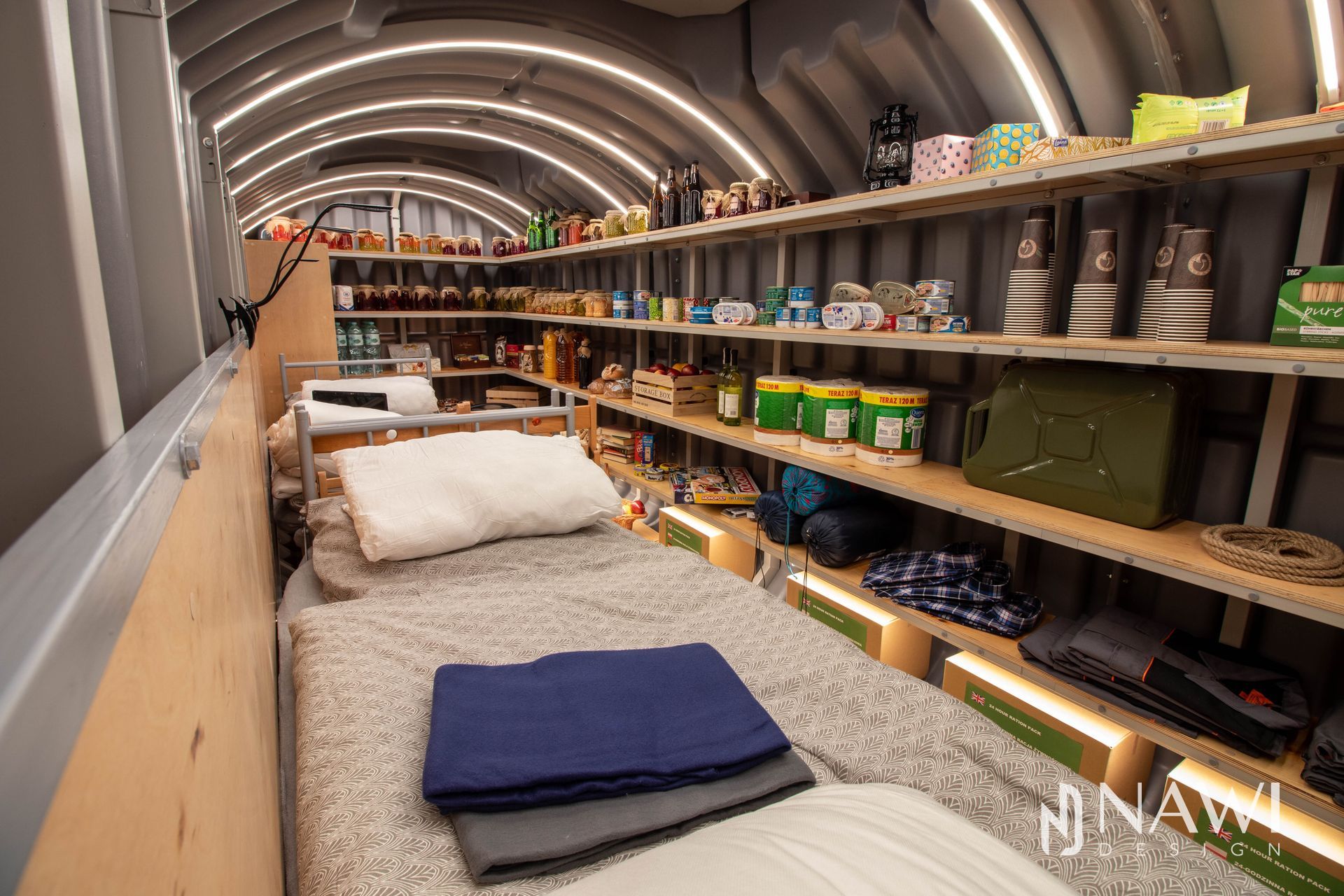
Is it possible for the cellar to serve as a shelter?
Introduction
In the face of an increasing number of crisis situations worldwide, more and more people are considering whether their basement can serve as a shelter. Traditionally, basements were used for storing food and other supplies, but they can also become invaluable shelters during unexpected crises. In the previous parts of this article, we discussed how to prepare your basement for potential use as a shelter in challenging situations and the benefits of having a basement as a shelter. Now, it’s time for more detailed information and tips to help you secure your basement as a shelter during a crisis.
Securing the Basement as a Shelter
- Assessing Basement Safety
The first step in preparing your basement as a shelter is a thorough assessment of its condition. Make sure there is no moisture or structural damage. Identify places where unwanted substances or pests might enter. Carry out necessary repairs and protect the basement from potential water leakage. Remember that moisture can lead to mold growth, which is harmful to both health and stored supplies. - Food and Water Supplies
Your basement shelter should contain adequate food and water supplies. Store non-perishable food items and bottles of drinking water. Ensure that you regularly replenish your supplies to maintain at least a few weeks’ worth of necessities. Consider investing in long-lasting food items such as canned goods or dried products, which retain their nutritional value for an extended period. - Ventilation and Air Filtration Systems
If your basement is intended to serve as a shelter for an extended period, consider installing ventilation and air filtration systems. This will provide access to clean air even when the outside environment is contaminated or toxic. Air filters can effectively remove dust, allergens, and potential chemical substances from the air. - Radiation Protection Measures
In case of potential radiation hazards, prepare adequate radiation protection measures. Radiological masks, protective clothing, and hazmat suits may be necessary to minimize exposure to nuclear or chemical radiation. It’s also advisable to invest in a Geiger counter or radiation detectors to monitor radiation levels in the basement. - Emergency Power Supply
Installing a generator or solar batteries can be crucial if you need access to electricity during a crisis. This will ensure you have lighting, communication, and essential appliances like a stove or refrigerator operational during power outages. - Security and Alarm Systems
Invest in security and alarm systems to monitor your basement and its surroundings. Security cameras, motion sensors, fire alarms, and intrusion alarms can provide additional safety during a crisis. These devices will help you stay informed about events both inside and outside your basement. - Medical Supplies
In addition to food and water, it’s essential to have medical supplies on hand. Maintain a well-equipped first aid kit and necessary medications to address illnesses or injuries that may occur during a crisis. Also, keep a handy first aid manual to provide guidance in emergency medical situations. - Communication and Information
Ensure that you have access to information during a crisis. Invest in a battery-powered radio or alternative sources of information to stay up-to-date with external events. Information is crucial during a crisis, enabling you to make informed decisions and respond to changing circumstances. - Evacuation Plan
Although the basement can be an excellent shelter, it’s wise to have an evacuation plan in place. In some situations, leaving the shelter may become necessary, so plan an evacuation route and arrange transportation options if possible. Ensure that all family members are familiar with the plan and know how to act in case of the need to exit the basement. - Family Training and Preparedness
Involve your family in the process of preparing the basement as a shelter. Conduct regular training and drills to ensure that all family members know what to do during a crisis. Prepare an adequate supply of personal protective gear, such as masks, gloves, or safety goggles. Each family member should be aware of the location of important supplies and equipment in the basement and how to use them.
Basement as a Shelter – Is It Worth It?
The decision to prepare your basement as a shelter is a matter of responsibility and readiness for various situations. A well-prepared basement can provide safety and comfort during a crisis, but only if it is adequately prepared and maintained. Geographic location plays a significant role because the types of threats can vary depending on the region. Therefore, it’s essential to tailor your plans and preparations to your specific location.
If you live in an area prone to natural disasters such as earthquakes or hurricanes, securing your basement as a shelter may be a priority. In such cases, it’s necessary to provide food, water, and other essential supplies to survive potential isolation and a lack of access to assistance from outside.
In situations related to security threats, such as armed conflicts or terrorist attacks, taking shelter in the basement can be a means of protection against potential dangers. It’s also worth considering equipping your basement with appropriate defense measures, such as bulletproof vests or gas masks.
Conclusion
A basement as a shelter can play a crucial role in ensuring safety and survival during challenging crisis situations. With proper preparation and security measures in place, your basement can become a sanctuary where you can weather periods of uncertainty and danger. Regularly replenish your supplies, maintain the infrastructure, and keep the basement in good condition to ensure peace of mind, knowing you have a secure place to shelter in times of need.
Preparing your basement as a shelter is an investment in the safety of yourself and your family, which can prove invaluable during difficult moments. Make sure all household members are familiar with the action plan and know how to use the resources in the basement. This is the key to effective survival during a crisis and maintaining a sense of calm and confidence in unexpected situations.




